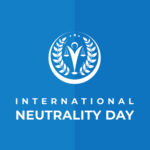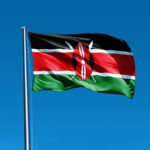Universal Health Coverage Day is observed annually on December 12 with the aim to ensure people around the world can get the quality health services they need without financial hardship.
To end the crisis and build a safer and healthier future, we must invest in health systems that protect us all. On Universal Health Coverage Day, let’s come together to demand action on universal health coverage.
History of Universal Health Coverage Day
Universal Health Coverage Day was originally promoted by the World Health Organization. The World Health Organization is part of the United Nations and is responsible for international public health. In December 2012, the United Nations General Assembly approved a resolution urging countries to fast-forward universal healthcare progression. The foundation hopes to cement the idea that everyone, everywhere should have access to affordable and quality healthcare, which is a vital priority for international development.
While all UN member states, including the United States, committed to accelerating the progress towards universal health, approximately 30 million Americans remain uninsured. Many middle- and low-income countries are also attempting to move in the direction of affordable and quality health care but there is still a lot of work to be done. Three countries are especially highlighted for their quality healthcare structures. Germany, which has the world’s first and oldest health-insurance system, the Netherlands, which has one of the best-performing healthcare systems, as well as Canada, which is America’s neighbor of equal geographical size.
The first modern healthcare system was established by a German named Chancellor Otto von Bismarck in 1883. The insurance model, called the ‘Bismarckian system’, required everyone to have insurance through sickness funds, which were similar to the current-day non-profit health-insurance companies. This coverage was initially only limited to blue-collar workers. Over time, mandatory health insurance became something for other societal classes. By 1987, nearly 90% of the population was covered. In 2007, Germany established its ultimate goal by passing a law that mandated health insurance for all residents.
In Canada, Saskatchewan became the first province to introduce universal public health insurance for hospital and diagnostic services in 1947. Today, all Canadians are automatically covered by Medicare — the country’s publicly funded healthcare system — which includes 13 provincial and territorial health plans. Meanwhile, in the Netherlands, private insurance and compulsory sickness-fund systems were consolidated into a single system in 2006. All residents are required to obtain health insurance, purchased on a national exchange.
Universal Health Coverage Day is also an opportunity to reflect on the progress made to date in the U.S. No two countries take the same path when it comes to healthcare, as they build their systems by taking into account their own historical, cultural, and sociopolitical contexts. While the U.S. has not yet achieved universal health coverage, the UN goal for 2030 is within reach for the country, as well as around the globe.
Universal Health Coverage Day timeline
A resolution on global health and foreign policy is passed by the UN, in the hope of accelerating progress towards universal health coverage.
The UN adopts the target of universal health coverage by 2030, which includes access to safe, effective, quality, and affordable medicines for all.
A third UN resolution is passed calling for the health of the most vulnerable, to promote an inclusive healthcare society.
The theme for UHC is ‘Unite for Universal Health Coverage: Now is the Time for Collective Action’ after the UN cements Universal Health Coverage Day annually on December 12 in 2017.
Universal Health Coverage Day FAQs
Why is universal health coverage important?
Universal health coverage is fundamental to ensuring social protection for health. The poorest populations often face the highest health risks and need more health services. Sharing resources is a key element to the financing for universal health coverage.
When did universal health coverage start?
Right now, not every country has universal health coverage. Universal health coverage ensures everyone has access to the health services they need without suffering financial hardship as a result. In December 2012, a UN resolution was passed encouraging governments to move towards providing universal access for affordable and quality healthcare services.
What is meant by universal health coverage?
Universal health coverage is defined as ensuring that all people have access to necessary health services that are effective and of sufficient quality, while also ensuring that the use of these services does not create financial hardship.
How To Observe Universal Health Coverage Day
Observe the UN’s yearly theme
Since 2017, the United Nations have announced a theme for each Universal Health Coverage Day on December 12. For 2020, the theme is ‘Health For All: Protect Everyone.’ The day will mark one year since the first cases of COVID-19 were reported. This means that global leaders must unite for every country to have quality and affordable healthcare, and this is more important than ever. Make sure to share the theme via your social media channels and remind your friends and family about why universal healthcare is important.
Join a campaign
There is a myriad of useful resources and tools you can use on Universal Health Coverage Day via the United Nations’ website. These online tools will help campaigners plan and organize virtual campaigns at a free or low cost. Have a look around in your community to see what healthcare campaigns are around, and consider joining one. Or, even better, make your own campaign to highlight the importance of quality and affordable healthcare in your society.
Share statistics via social media
Did you know that rising deductibles in private plans, including employer plans, have left an estimated 44 million Americans underinsured? On Universal Health Coverage Day, consider doing some research into the healthcare system of your country and point out the current barriers that are preventing universal health coverage. Share on social media with relevant hashtags to get the momentum going.
5 Interesting Facts About Global Health
Healthcare is not provided worldwide
At least half the world’s population does not receive the essential health services they need.
It’s too expensive for many
Nearly 12% of the world’s total population — often the poorest — are further impoverished by the cost of healthcare.
Phones over toilets
Many people have more access to a mobile phone than a toilet.
Childbirth contributes to many deaths
Over 800 women die due to complications during pregnancy and childbirth every day.
Malaria kills half of Zambian children
Sadly, not enough is spent on malaria prevention, with Americans spending more money on Halloween than the world spends on malaria.
Why Universal Health Coverage Day Is Important
People need healthcare
Did you know diarrhea kills 2,195 children every day — more than AIDS, malaria, and measles combined? This means that many people around the world do not have access to even the most basic of medicines and healthcare. Proper sanitation is a luxury for people who live in extreme poverty. Universal Health Coverage Day is for everyone, to highlight the critical importance of quality and affordable healthcare around the world.
Working towards universal healthcare strategies
Universal Health Coverage (UHC) is possible and, every day, countries around the world are making strides towards achieving it. But there’s still a long way to go. In Zambia, for example, the doctor-patient-ratio is reported as one doctor to every 12,000 patients. The WHO’s acceptable ratio stands at one doctor for every 5,000 patients. Universal Health Coverage Day highlights these issues around the world that need to be worked on more to achieve the 2030 goal.
Healthcare can be culturally sensitive
Every day, healthcare NGOs and organizations band together to implement programs, which are successful and accepted in communities and cultures around the world. Certain medical practices and new technology cannot always be implemented in the same way around the world. For example, in one rural village of Kenya, community members began rejecting water purifying tablets that were distributed to help combat the health risks linked to the consumption of contaminated water. People there didn’t trust the water purifiers and believed that using them was fatal. This is why constant donations and extensive communication is needed to dispel certain myths about healthcare in various parts of the world.
Universal Health Coverage Day dates
| Year | Date | Day |
|---|---|---|
| 2025 | December 12 | Friday |
| 2026 | December 12 | Saturday |
| 2027 | December 12 | Sunday |
| 2028 | December 12 | Tuesday |
| 2029 | December 12 | Wednesday |



















